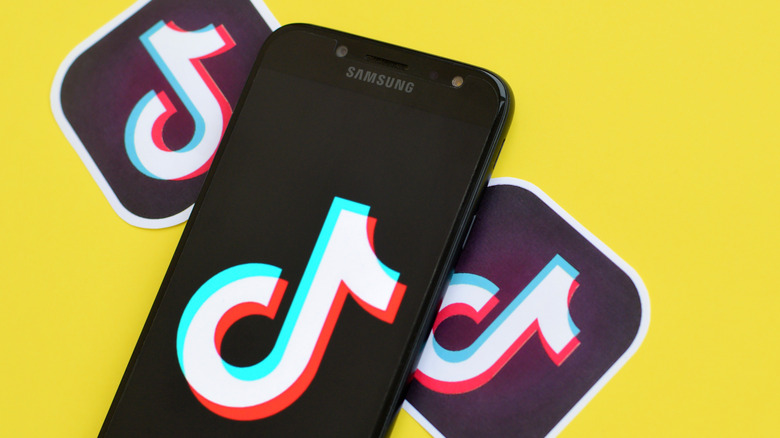This Dangerous TikTok Trend Leaves Teens Feeling Vulnerable
If you don't immediately think "clock" when you hear the phrase "TikTok," then you must be among the millions who have embraced this super-trendy app. It's easy to see why TikTok is so popular — the videos are fun to make, watch, and share, and there's something to appeal to every taste. Maybe you like to see your favorite celeb syncing in perfect timing to a song snippet, or learn a new makeup technique. There are lots of cool life hacks to be found, too, like genius ways to eat cupcakes, how to best clean your blender, and fold clothes.
But, as with any social media, there are drawbacks to TikTok — and even dangers, particularly to teens, who make up a sizable percentage of the app's users. Increasingly, high-schoolers are using TikTok as a medical resource and diagnosing themselves with mental health issues such as ADHD, anxiety disorder, and bipolar disorder. Isolated from friends and classmates during the height of the COVID-19 pandemic led many to spend hours on the app, where the video topics include mental health along with the goofy stunts and pasta hacks. As Fortune explains, many of these videos come from unreliable sources and offer questionable self-diagnosis techniques, like quick quizzes about sleep habits and mood swings.
Once "diagnosed," kids can easily find hashtags on the disorder of choice and bond through their videos and comments, creating an additional source of support. But experts say this isn't necessarily a good thing.
Some teens are diagnosing themselves with mental health issues they may not really have
A report from The Wall Street Journal on this "Dr. TikTok" trend explains that the app tracks the content user's watch, along with the amount of time spent on the videos. Based on that information, TikTok then creates an algorithm on the user's feed. So teens who express an interest in, say, depression or social anxiety, will suddenly see an influx of content on that subject — creating even more interest and views.
The problem, of course, is that looking up symptoms online is a highly inaccurate way of diagnosing any health issue. Many teens on TikTok are convincing themselves they have mental health problems that they don't actually have. Experts told The Wall Street Journal that certain disorders, such as borderline personality disorder and multiple-personality disorder, are almost never diagnosed in teens because the symptoms are too close to normal teen behavior.
Overexposure to mental health TikToks may even bring on psychosomatic symptoms. One study from the British Medical Journal found that some teen girls with Tourette syndrome reported watching multiple videos on the condition before experiencing the tics associated with it. They also admitted that they enjoyed posting videos of their tics in order to get followers.
Concerned parents can use TikTok parental controls to monitor the amount of time and type of content their teen uses, suggests Common Sense Media. It's also important to look for signs of actual mental health issues, such as declining grades, loss of interest in activities, and excessive moodiness, per Mental Health America.

